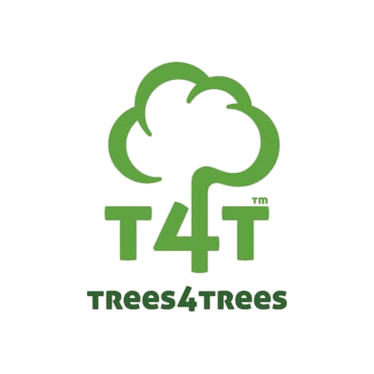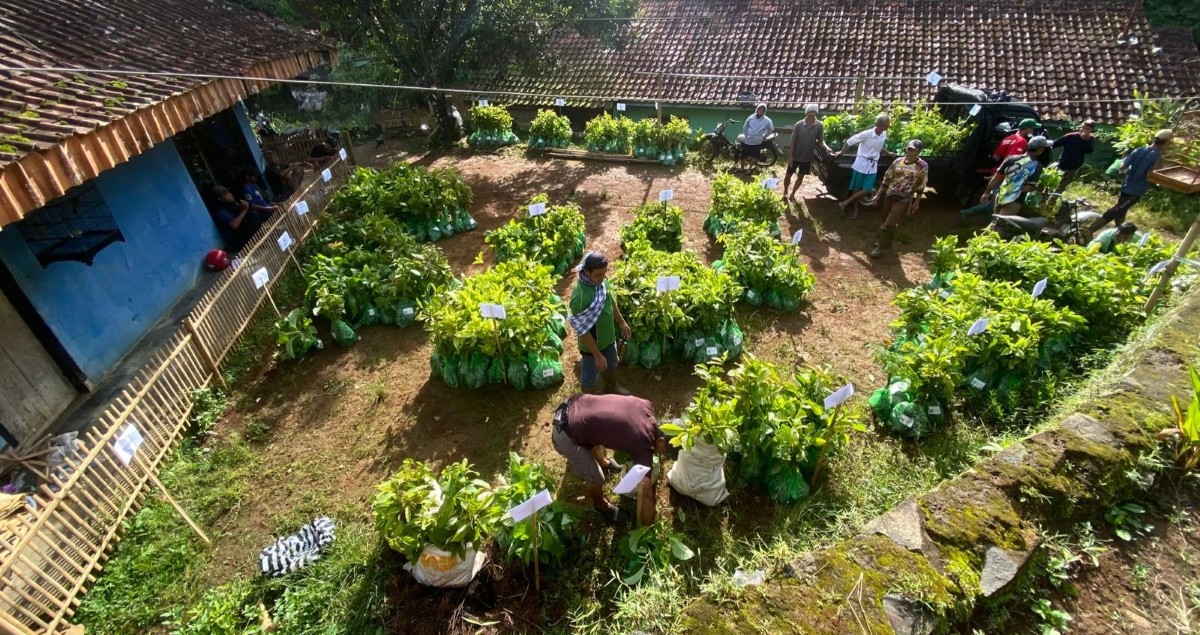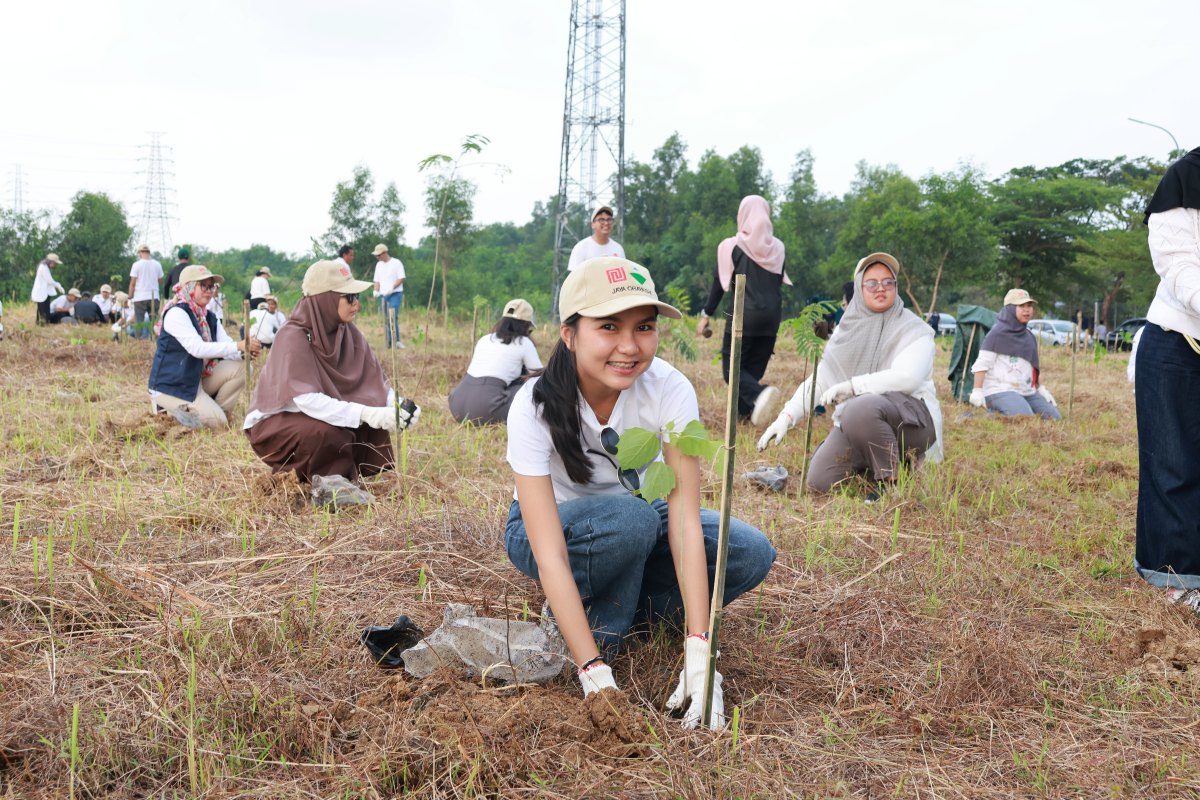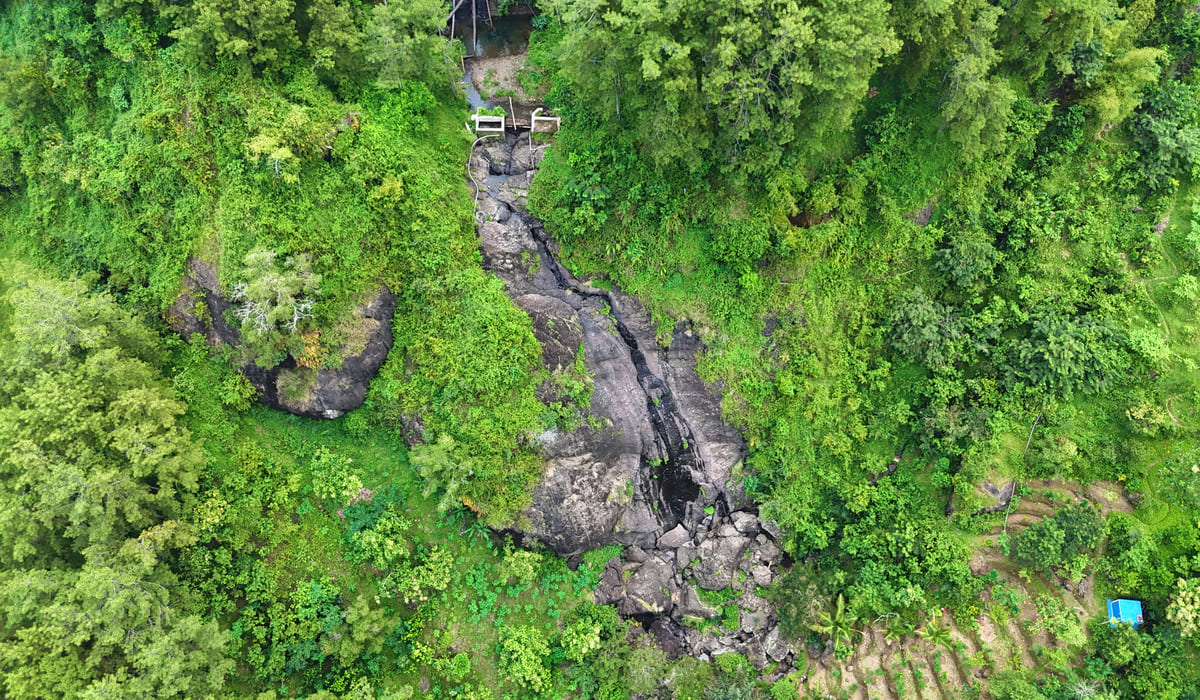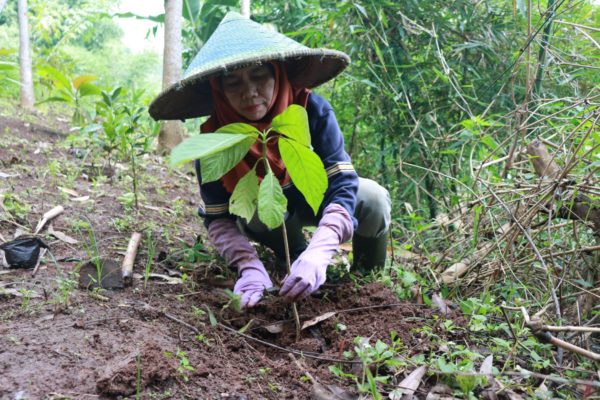
Lebak Muncang Village in Ciwidey District is predominantly characterized by agricultural areas, tea and coffee plantations, forests, and rice fields. Given that agriculture plays a vital role in supporting the livelihoods of the local community, the village has been selected by the Bandung Regency government as one of the ten pilot villages for nature-based tourism, particularly agro-tourism activities.
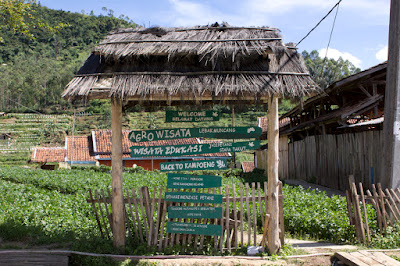
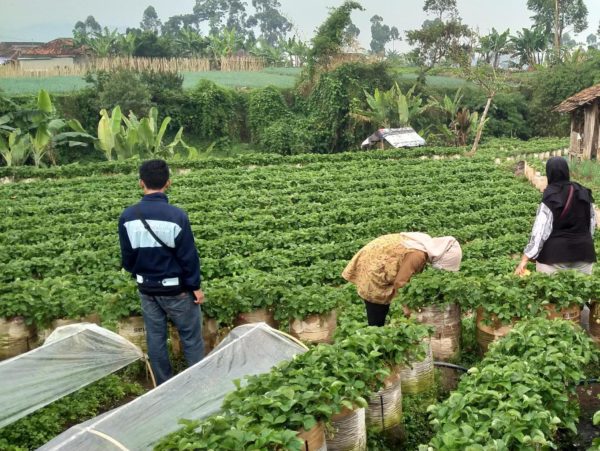
Benefiting Planting Trees from Their Crops
The majority of Lebak Muncang villagers are engaged in vegetable and fruit farming. Among them is Elis (55), who has been involved in farming for the past 30 years. Her land is cultivated with a variety of crops, including coffee, cassava, seasonal vegetables, and chilies. Previously, Elis used to farm alongside her husband. Unfortunately, two years ago, her husband passed away, leaving her to face the challenges of life as a single parent. Despite the hardships, Elis persevered and continued farming to provide for her two children.
“I am grateful for this tree planting program as it greatly benefits me as a farmer. The program team regularly visits to monitor the trees I planted, ensuring they are in good condition and growing healthily. I am also grateful because we are given ownership of the trees and their yields. This allows us to manage our crops to meet our daily needs and support our future,” expressed Elis.
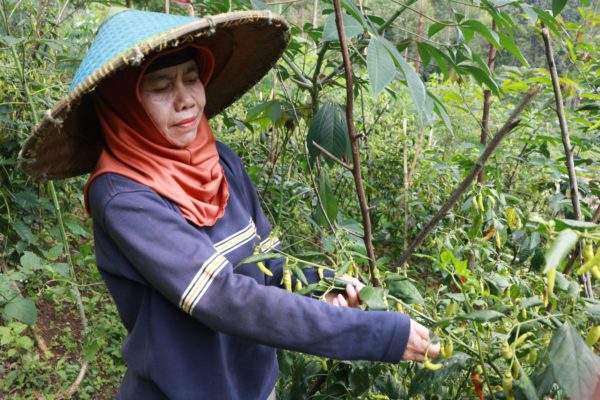
Planting Trees to Restore Water Availability
However, Elis’s motivation for tree planting extends beyond the economic benefits for her family. She is deeply concerned about the environment surrounding her village. She mentioned that there used to be a substantial forest in the area, which has unfortunately been converted into residential areas. Consequently, accessing clean water has become a challenge.
“To access clean water, we have to install a hose from a spring located approximately 10 kilometers away from our village. In the past, when the forests were intact, clean water was readily available here, and we didn’t have to rely on distant springs,” she revealed.
Elis hopes that by planting more trees, the forest’s original function of providing clean water can be restored. She also looks forward to participating in the tree planting program next year, enabling her to plant more trees on her remaining 1,600-meter square of her land.
